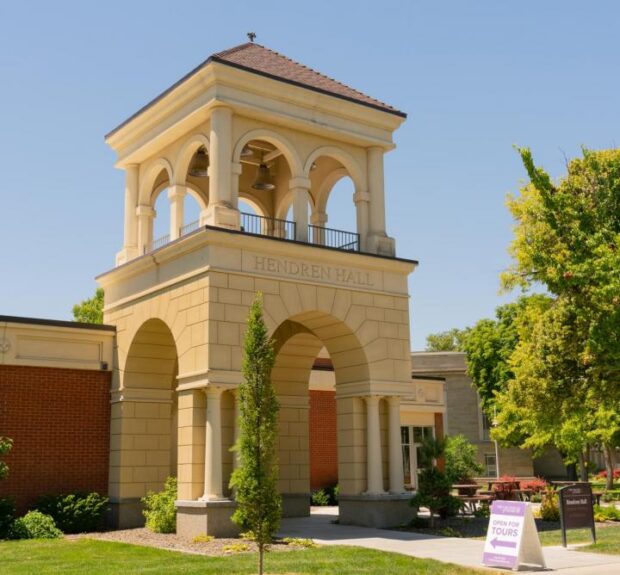Colleges and universities across the country are changing their health policies in light of the Supreme Court’s decision to overturn Roe v. Wade, the 1973 ruling that legalized abortion in the U.S. Some states are requiring schools to provide abortion pills, and others are ramping up access to emergency contraceptives.
But Idaho’s colleges and universities don’t have much freedom to move.
That’s because the Idaho Legislature made it illegal in 2021 for public colleges and universities to disperse emergency contraception under a law preventing the use of public money for “abortion-related activities.” The legislation applies to all public schools in Idaho, from large universities to two-year community colleges.
The bill also made it illegal for public schools to refer students to abortion providers.
Often referred to as the morning-after pill, emergency contraception is an over-the-counter medication used to prevent pregnancy within 72 to 120 hours of having unprotected sex. Common brand names include Plan B and Ella.
The medication does not induce an abortion. Instead, it can prevent the release of an egg, prevent the fertilization of a pre-released egg or stop a fertilized egg from attaching to the womb.
The Supreme Court’s June 24 decision to overturn Roe triggered another Idaho law banning abortion in almost all cases. The ban is set to take effect on Aug. 25.
Some are concerned that the abortion ban, combined with limited access to emergency contraception on campus, will result in a higher rate of unplanned pregnancies among college students — something they consider to be a negative impact.
“Especially if it’s out-of-state students, they might not know any of the resources around,” said Zoey Bevington, a Boise State graduate who attended a pro-abortion rights rally in Boise. “They might only be limited to the university for their resources for health. If they can’t get it there then they might … have an unplanned pregnancy that they don’t want.”
But lawmakers responsible for the bill say they intended for it to be a reprieve for taxpayers, not an attack on contraception.
“These are things I didn’t think that taxpayers should be paying for,” said Rep. Bruce Skaug, R-Nampa, a sponsor of the bill. “It has nothing to do with it being contraception … it’s simply for the taxpayers.”
Skaug added that he does not believe the bill will have any additional impacts on college students when combined with a statewide abortion ban.
Idaho’s public universities say not much is changing after the SCOTUS decision.
Stuart Summers with Idaho State University says the school will provide the same services it has since Idaho law changed in 2021. Lisa Salsbury, director of the Women’s Center at the University of Idaho, says the issue is “highly complicated,” but the center is working on a plan to support students as they return to campus. Boise State did not respond to a request for comment.
According to the latest data released by the Idaho Department of Health and Welfare, the largest share (41.5%) of abortions statewide in 2020 involved individuals aged 18-24. People aged 25-29 accounted for another 25.2%. Most college students fall within these age groups.
This data was gathered in 2020, so it’s unclear whether or not the 2021 legislation has impacted the abortion rate among college-aged individuals to date.
One private college provides emergency contraceptives
The College of Idaho, located in Caldwell, is likely Idaho’s only higher education institution that provides emergency contraception. The college is exempt from the 2021 restrictions because it’s privately funded.
Brigham Young University Idaho – another private college — does not provide emergency contraception for reasons unrelated to the legislation. A third private school, Northwest Nazarene University, refused to comment.

C of I students can access the medication through the college’s health center after meeting with an on-campus medical professional. The contraception is provided at no cost to the student.
“It’s legal, and it’s a safe form of reproductive health,” said Paul Bennion, dean of students at C of I. “We try and be as inclusive as possible in terms of the reproductive health options that we have available to students, and let students, in consultation with medical staff, make those decisions that are in their best interest.”
C of I also provides free condoms, STD testing and pregnancy tests. The college does not track who uses the resources or how often – something that is intentional, said Bennion.
If students need other services, like IUD insertion or birth control, the health center refers them to medical providers within the community.
C of I student Lily Archuleta has worked in the health center and will enter the Advocates program this year, acting as a confidential resource for students experiencing mental health crises or instances of sexual assault and abuse.
Through her work at the college, Archuleta has helped at least one student get Plan B through the health center this summer.
“College is really hard,” said Archuleta. “It’s really scary to think that maybe there would be something completely impacting your ability to finish schooling. And if there’s anything that a college can do to make sure that doesn’t happen and allow their students to finish their four years, I think it’s really important.”
Archuleta says her own experience as the daughter of a mother who had an unplanned pregnancy lends her more understanding of the complications that might arise.
“You’re paying a lot of money to be (at college),” she said. “There’s a lot of social expectations as well as the academic expectations. And I think an unplanned pregnancy would just flip literally everything on its head.”
The senior has not heard any campus pushback against the resource.
